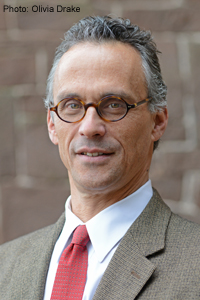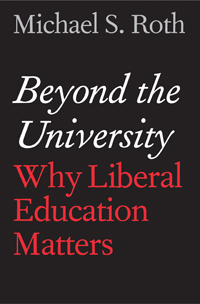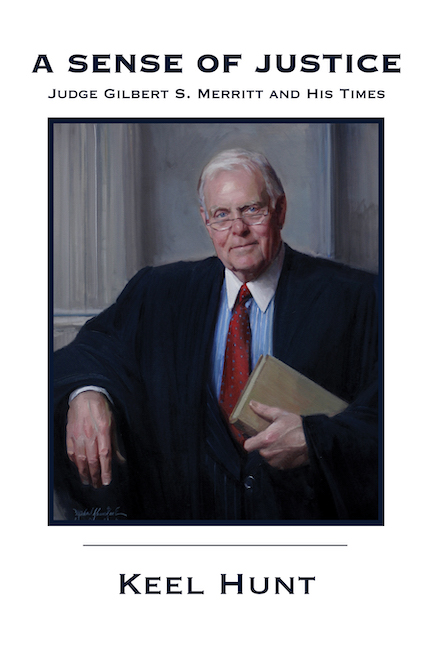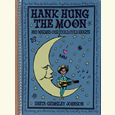When It Works, It Never Ends
Michael S. Roth argues for the necessity of a liberal-arts education
Early in Beyond the University: Why Liberal Education Matters, Michael S. Roth acknowledges what many new graduates are undoubtedly thinking: “These days the words ‘college education’ are more likely to be linked to the words ‘excessive debt’ than ‘liberal learning.’” The nation’s universities have always been subject to criticism, particularly regarding a liberal education’s relation to material success. In each generation, the demands of higher education on both American culture and its citizens have cultivated questions about liberal versus vocational education—about what content delivers the best education for its own sake, that is, and what content lends its students the most measurable success outside college. Roth’s argument—with support from a wide range of thinkers, including Thomas Jefferson, Jane Addams, John Dewey, and Richard Rorty—dismantles the assumptions behind such questions.
 “It’s not that one ‘gets an education’ in order to ‘do things in the world,’” he writes; “it’s that doing things in the world and getting an education are part of the same process.” A general education in the liberal arts, in other words, is part of a student’s lifelong development, both as a human being and as a citizen. Roth quotes Jefferson’s recognition that wide access to a liberal education would be linked to the preservation of freedom in a burgeoning republic. And though he acknowledges that Jefferson’s “conventional racism and sexism led him to think that neither women, Africans, nor native peoples should enjoy that possibility,” he goes on to note that such destructive attitudes were not the final word in this nation precisely because of the value of a liberal education. As prevalent as such prejudices were among the founders, the work of Jane Addams, W.E.B. Du Bois, and Frederick Douglass would demonstrate that the disenfranchised were perfectly capable of remedying such wrongs through arguments advanced by their own education.
“It’s not that one ‘gets an education’ in order to ‘do things in the world,’” he writes; “it’s that doing things in the world and getting an education are part of the same process.” A general education in the liberal arts, in other words, is part of a student’s lifelong development, both as a human being and as a citizen. Roth quotes Jefferson’s recognition that wide access to a liberal education would be linked to the preservation of freedom in a burgeoning republic. And though he acknowledges that Jefferson’s “conventional racism and sexism led him to think that neither women, Africans, nor native peoples should enjoy that possibility,” he goes on to note that such destructive attitudes were not the final word in this nation precisely because of the value of a liberal education. As prevalent as such prejudices were among the founders, the work of Jane Addams, W.E.B. Du Bois, and Frederick Douglass would demonstrate that the disenfranchised were perfectly capable of remedying such wrongs through arguments advanced by their own education.
It’s not just liberal education’s capacity to equalize society that interests Roth, however. As president of Wesleyan University, he’s very familiar with the criticisms leveled at liberal-arts colleges today: “Why should I bother to learn history, biology, or political science, when what I really want is a credential to get a better job in a large organization?” Roth couches his reply in a liberal education’s ability to give students focus, to help them “develop the ability to converse with others about shaping the objects, norms, and values that will inform their own lives. They will develop the ability not merely to criticize values but to add value to the organizations in which they participate.”
 Nevertheless, Roth understands that a new graduate entering today’s economy—one marked by tremendous debt and high unemployment—may be unable to hear him: “Education depends fundamentally on our ability to generate optimism and find reasonable (defensible) ways to sustain it,” he writes. “When our faith in the future is shaken, whether it be by technologies we don’t understand, economic competition that undermines job security, or cultural forms that challenge our sense of identity, we often criticize education as having failed to prepare us for our current predicaments. And so it has been since the Puritans first set up schools in the New World.”
Nevertheless, Roth understands that a new graduate entering today’s economy—one marked by tremendous debt and high unemployment—may be unable to hear him: “Education depends fundamentally on our ability to generate optimism and find reasonable (defensible) ways to sustain it,” he writes. “When our faith in the future is shaken, whether it be by technologies we don’t understand, economic competition that undermines job security, or cultural forms that challenge our sense of identity, we often criticize education as having failed to prepare us for our current predicaments. And so it has been since the Puritans first set up schools in the New World.”
Roth gives fair representation to the critics, most notably Peter Thiel, who argue that current technologies have obviated the need for a postsecondary education of any kind, liberal or vocational, because a work ethic combined with a Wi-Fi connection can produce hundreds of thousands, if not millions, of dollars in profits. This is an argument that Roth acknowledges with a nod to a famous scene from The Graduate: “Today, Mr. McGuire would whisper, ‘Digital media’ or ‘Apps’ to a young graduate. But would audiences still perceive a satire?”
Roth is troubled by the division of human beings into the intellectual elite (those who benefit from a complete college experience) or drones (those who advance monetarily through vocational instruction), which he argues is fostering a new sort of inequality: “Higher education in the United States has traditionally functioned as a vehicle for social mobility,” he told NPR in a recent interview. “And as costs have escalated and financial aid has not kept up with those costs, elite education has become a way of cementing privilege.”
That fortress of privilege, however, is far from complete. The risk of a book like Beyond the University is that it may attract primarily those readers who are already convinced that the liberal arts matter, but so long as humanities defenders are as perceptive and passionate in their arguments as Roth is in his, detractors cannot possibly ignore the debate. Nowhere is this fact more evident than in Roth’s closing argument, where he makes a last push for understanding liberal education as a tool that “matters far beyond the university because it increases our capacity to understand the world, contribute to it, and reshape ourselves. When it works, it never ends.”
Tristan Charles graduated from the University of Tennessee and works at Parnassus Books in Nashville.


